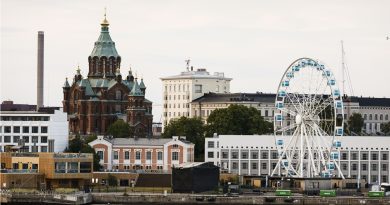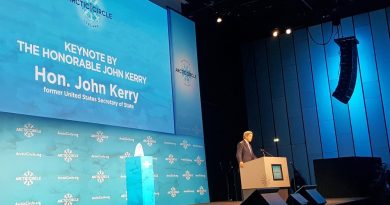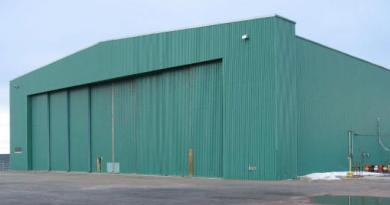Lavrov turns down invitation to Arctic talks in Norway
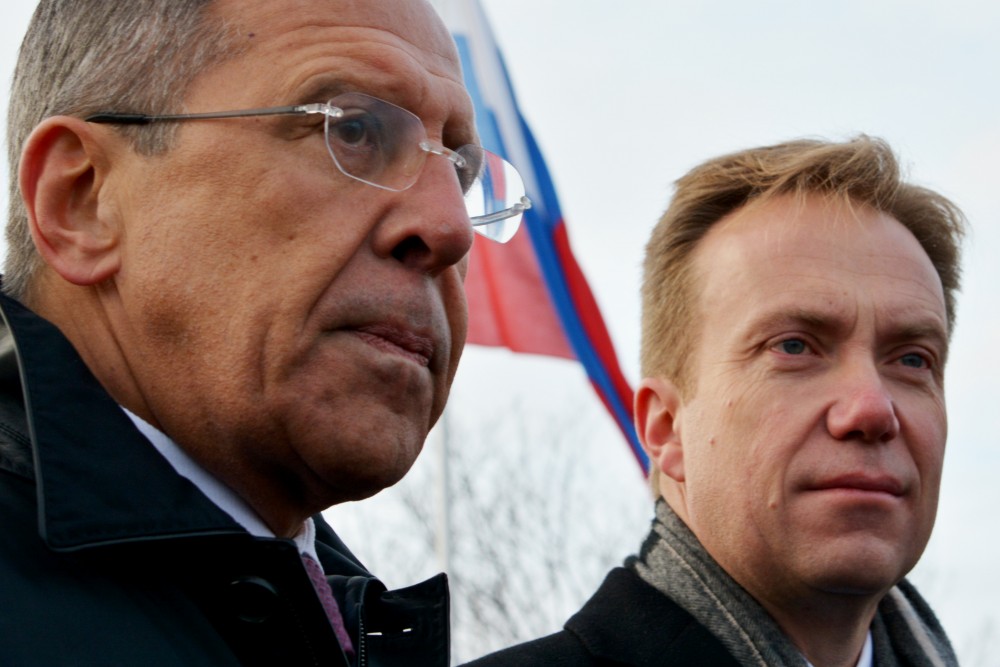
Reciprocity is often said to be keyword in understanding Russian foreign policy. “When you don’t visit me, I will not visit you.”
Norway’s door for Arctic cooperation with Russia stays open, but Russia’s Foreign Minister seems reluctant to enter. At least as long as the Norwegian Minister doesn’t knock on the door to his home.
Børge Brende has not visited Russia one single time after Norway put a halt to high profile minister visits to neighbouring Russia after Moscow’s annexation of Crimea in March 2014. Sergey Lavrov, however, visited Kirkenes, Norway’s border town in the north, in October 2014 celebrating the 70th anniversary of the Red Army’s liberation of Finnmark.
Recently, the Foreign Ministry invited Lavrov to attend and talk at Arctic Frontiers. The annual conference in Tromsø in January is one of the largest gatherings for circumpolar talks in the crossroad between research, business and politics.
The mirror play
Associate Professor Geir Flikke with the University of Oslo is an expert on Russia’s foreign policy. He says understanding of reciprocity in international relations is more important than you might think.
“In the international system nations seek status and often uses soft power in promoting this. Attraction and respect is a kind of invisible motive in diplomacy, and you should never underestimate its importance,” says Geir Flikke and points to James Sherr’s interpretation of Russia’s understanding of reciprocity towards neighbours before 2014 as “soft coercion.”
James Sherr is former head of the Russia and Eurasia programme at Chatham House and author of the book “Hard Diplomacy and Soft Coercion: Russia’s Influence Abroad.”
Norway needs to balance its interests
Geir Flikke says the key question for Norway will be how to balance a clear stand on international rules and, simultaneously, safeguard Norwegian interests for predictability and stability in the north.
“That question can’t be answered in one sentence,” Geir Flikke says.
“Russia is still sanctioned by the West, for good reasons. The annexation of Crimea violates international law, and the conflict in Eastern Ukraine has nothing to do with soft power; it can rather be considered coercive power,” Flikke argues.
Oslo downplays Lavrov’s absence

Oslo, however, downplays the Russian foreign minister’s absence from Arctic Frontiers. State Secretary Marit Berger Røsland says to the Barents Observer that Lavrov was one of several foreign ministers invited to Tromsø.
“Russia’s Foreign Minister Lavrov was invited to Arctic Frontiers 2017 together with foreign ministers from several other countries and as a representative of one of the most important countries in the Arctic. Several ministers have replied “yes” to participation, something we appreciate. Then, there are someone that replied “no” because they are absent, including Russia. That is all normal,” Marit Berger Røsland says.
She denies there is no political dialog with Russia about Arctic issues.
“The Foreign Minister meets his Russian colleague regularly in connection with international meetings. We had bilateral consultations at State Secretary level in October 2015 and again in May 2016, where Arctic questions were on the agenda. It has also been other bilateral meetings at State Secretary levels, like the commissions on nuclear safety, environment and within the working group of Interregional and Cross-Border cooperation,” State Secretary Berger Røsland tells.
Asked about possible Norwegian participation at Arctic conferences in Russia, she says that will be considered.
“Norwegian participation at conferences in Russia and other places will be considered from time to time. We will consider participation at the conference in Arkhangelsk in March if and when we get an invitation,” Marit Berger Røsland says.
High profile Arctic conferance in Arkhangelsk
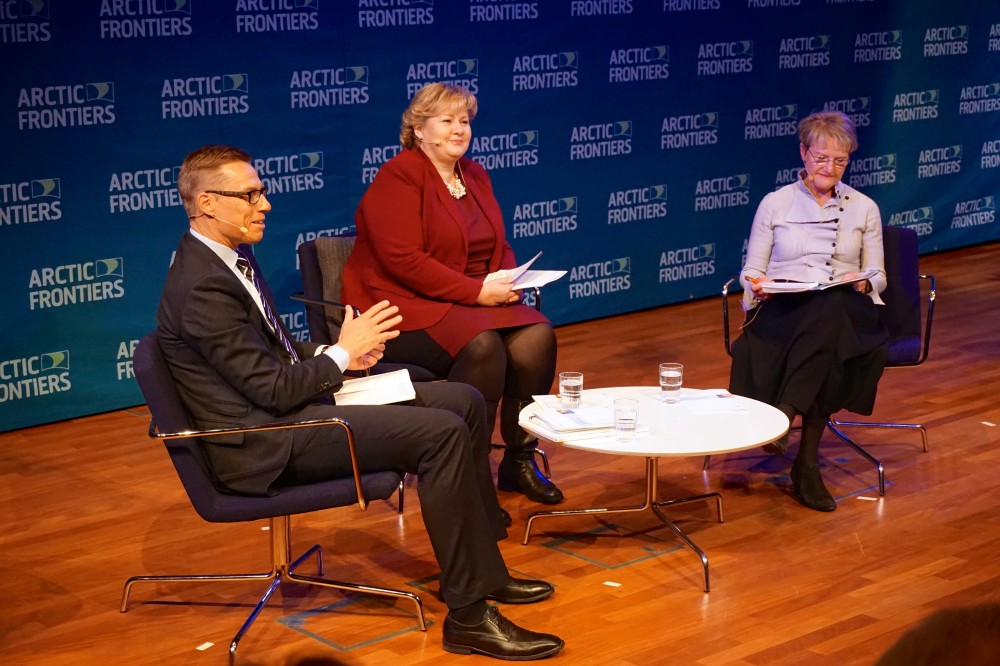
Russia’s Deputy Prime Minister, Dmitry Rogozin, recently announced the next huge Arctic Forum to take place in Arkhangelsk on March 30th with “executive officers of the Arctic Council from Russia, Norway and Iceland; officials from Denmark and Canada; other representatives of relevant ministries, agencies and big business.”
At the Nordic Council meeting in Copenhagen a month ago, Norway’s Prime Minister said to the Barents Observer that Nordic prime ministers agree Russia is acting responsibly in the Arctic Council; “making it an appropriate venue for dialogue in the north.”
Solberg said she has invited her Nordic colleagues to Arctic Frontiers in Tromsø. So far, Finland’s Juha Sipilä is the only listed as speaker in the program.
Among the 13 foreign ministers invited by Børge Brende, Sweden’s Margot Wallström is on the list of speakers.
Related stories from around the North:
Canada: Trump’s election a cold reality check for Arctic, Blog by Mia Bennett
Denmark: Obama and Nordic leaders pledge Arctic cooperation, Alaska Dispatch News
Finland: Finland’s Foreign Trade and Development Minister concerned about Trump’s climate policy, Yle News
Greenland: Greenland, Alaska elections bolster Arctic resource extraction, Blog by Mia Bennett
Iceland: Iceland’s Pirate Party leads polls few days before elections, The Independent Barents Observer
Russia: Russian Foreign Ministry dismisses Supo property fears as Russophobia, Yle News
Sweden: Land, water rights big issues in Sweden’s Sami elections, Radio Sweden
United States: Will Trump reverse protective Obama policies in the Arctic? It’s unknown now, Alaska Dispatch News

